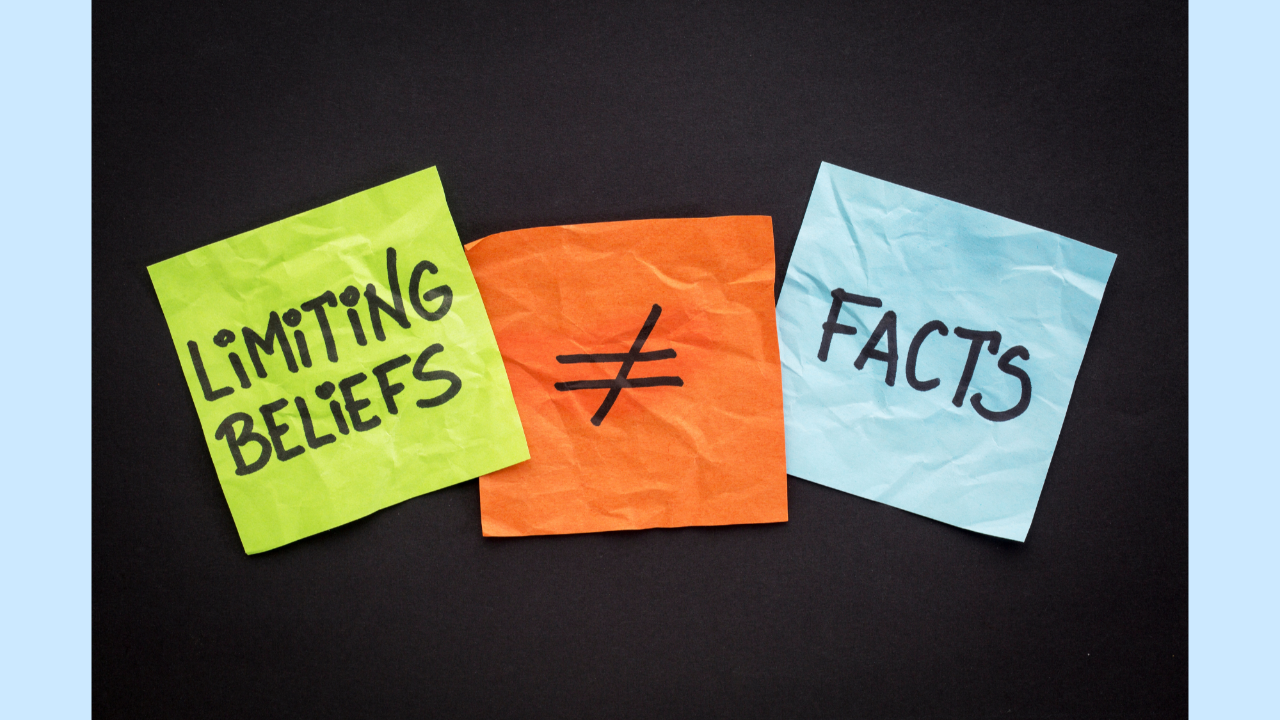The Power of Anger: Harnessing the Emotion for Positive Change

Introduction
Anger is a complex emotion, often mislabeled as solely negative. We all experience moments of anger, triggered by various situations or interactions. Beneath its fiery exterior, anger holds a crucial message and potential for constructive action. This article explores the multifaceted nature of anger, highlighting its role in signaling violations of our core values and propelling us into constructive action.
The Misunderstood Emotion
Anger, frequently linked to aggression and uncontrolled outbursts, is a misunderstood emotion. While anger can indeed manifest in these ways, it's essential to recognize that anger itself is not inherently negative. It's a natural response to perceived threats, injustices, or violations of our boundaries and values. Instead of dismissing it, we can learn to decode the message anger conveys.
Anger as a Signal
At its core, anger serves as a signal. It alerts us to the fact that something we deeply care about has been violated. This could be a personal boundary, a cherished value, a loved one, or an important principle. Anger acts as an internal alarm system, letting us know that our sense of justice or fairness is under attack. When we understand this, anger can be seen as a source of insight, offering a window into our core beliefs and values. Additionally, anger is not "negative" because it is indicative of a deep caring for something or someone.
The Call to Action
Anger doesn't stop at mere signaling. It propels us into action. It provides the energy and motivation to address the issues that have triggered it. When harnessed effectively, anger becomes a force for positive change. It compels us to stand up against injustice, advocate for our rights, or protect what we hold dear. From social movements that challenge systemic inequalities to individuals who courageously speak out against wrongdoing, anger has been a driving force behind positive transformations.
Using Righteous Anger Constructively
Righteous anger arises in response to perceived threats or injustices toward something or someone you care deeply about, such as the well-being of a loved one or an important cause. This form of anger is driven by the desire to protect and care for what matters to you. It's the voice of justice and compassion, urging you to take a stand for what you believe is right. Now, let's look at the different ways we can use that anger, and how it can either serve us or destroy us.
Destructive vs. Constructive Anger:
It's important to distinguish between destructive and constructive anger. Destructive anger manifests in harmful ways, leading to aggression, violence, or harm to oneself or others. In contrast, constructive anger involves acknowledging your feelings, identifying the source of your anger, and finding healthy ways to address it. This might include assertive communication, conflict resolution, or channeling your energy into activism or advocacy.
Using Anger Constructively
Harnessing the power of anger constructively involves channeling its energy into positive action. Whether it's advocating for social justice, setting healthy boundaries in personal relationships, or pursuing self-improvement, anger can be the driving force that motivates positive change. It's crucial to identify specific methods and strategies for transforming anger into a tool for personal and societal improvement.
- Coping Strategies: Harnessing the power of anger constructively requires adopting coping strategies to manage this intense emotion effectively. Techniques such as deep breathing, mindfulness, or meditation are invaluable tools. When anger surges, pausing to take slow, deep breaths can help calm your nervous system. Mindfulness practices teach you to observe your emotions without judgment, promoting emotional regulation. Meditation, on the other hand, allows you to focus your mind, helping to quell anger's turbulence so that you can think clearly about how you can use your anger for good.
- The Role of Empathy: Empathy plays a vital role in mitigating anger by fostering a deeper understanding of others' perspectives and potentially preventing conflicts. Empathizing with someone who has triggered your anger doesn't mean you condone their actions; it means you're willing to see the situation through their eyes. This understanding can reduce the intensity of your anger and lead to more productive conversations, instead of simply yelling or shutting down. In this way, empathy becomes a bridge to resolution, transforming anger into a tool for growth.
- Real-Life Examples: Some of history's most influential figures have masterfully channeled their anger into positive change. Martin Luther King Jr., the civil rights icon, epitomized the constructive use of anger. He harnessed his anger at racial injustices to advocate for nonviolent social change. Similarly, the women's rights movement drew strength from the anger women felt at the oppression they faced. Real-life examples like these remind us that anger can be a driving force behind transformative societal progress.
- The Connection Between Anger and Personal Growth: Confronting and effectively managing anger can lead to profound personal growth and emotional resilience. When you learn to navigate anger constructively, you also develop greater self-awareness and emotional intelligence. As you gain control over this intense emotion, you become better equipped to cope with life's challenges, promoting your own growth and well-being.
- The Connection Between Anger and Creativity: Anger's intensity can serve as a source of creativity. It has inspired individuals throughout history to express themselves through various artistic outlets, from painting and sculpture to writing and music. Artists have harnessed their anger to fuel their creative endeavors, transforming it into a driving force for their work. By channeling anger into creative expression, individuals find a unique way to cope with their emotions and contribute to the world's cultural tapestry, as well as to help others understand what injustices are being conducted and why they must be changed.
When used constructively, anger has benefits. It can serve as a catalyst for personal growth, social change, and improved relationships. By using some of the tools above to acknowledge and work with your anger, you can experience emotional liberation, increased self-awareness, connection to others, and a strengthened sense of justice.
Letting Anger Go
While anger can be constructive, it's essential to recognize that holding onto it for an extended period can have detrimental effects on your mental and physical health. Anger, as a powerful emotion, triggers a series of physiological and psychological responses. Understanding these responses is crucial for effectively managing and ultimately letting go of anger.
The Physiology of Anger:
Anger ignites a physiological response in your body. When you experience anger, your heart rate increases, adrenaline surges, and your muscles tense. These immediate physical reactions are part of the body's fight-or-flight response, designed to prepare you for action when facing perceived threats. Recognizing these physical responses is the first step in addressing anger mindfully. Additionally, it is important to acknowledge that having your body be in this state for a long time will wear you down. At a certain point, anger will drain you more than it energizes you because your body is in overdrive. That is why anger must be let go of.
The Psychological Impact:
Unmanaged anger can have a profound psychological impact, leading to heightened stress, anxiety, and even depression. When anger is allowed to persist unchecked, it can create a constant state of emotional turmoil. It affects your overall well-being and mental health, making it challenging to find peace and happiness in daily life. Managing anger effectively is essential for emotional well-being. It involves learning how to recognize anger, address its underlying causes, and implement strategies for constructive expression or release.
The Importance of Letting Go:
Understanding the physiological and psychological effects of anger highlights the importance of letting it go when its purpose has been fulfilled. Acknowledging your anger and using it constructively is just one part of the process. Once anger has served its role as a signal and motivator for positive change, clinging to it can be counterproductive. Letting go allows you to restore emotional balance and inner peace, paving the way for healthier relationships and a more fulfilling life. By recognizing when it's time to release anger, you not only preserve your mental and physical health but also ensure that this intense emotion continues to serve you positively in the future.
How To Let Go:
When you realize anger has served its purpose, thank your anger for the purpose it served, and acknowledge that if you hold it for any longer, it will likely burn you out more than it will energize you. Now, it is time to choose a new emotion. Perhaps you pivot from anger to a partner emotion, like determination, which allows you to continue to make changes to bring about justice or a solution, but without the fiery fight or flight part that will burn you out. Additionally, you can pivot to love and care; instead of focusing on what made you angry, focus on how you're going to make things better for the person who was wronged, whether it be yourself or someone else, by taking action based on love for that person. Lastly, if whatever made you angry has come to pass, it's okay to just take a big breath and let it go, replacing the anger with calm.
Conclusion
Anger is a potent and transformative emotion that, contrary to popular belief, is not negative; when understood and harnessed effectively, anger has the potential to drive positive change. It serves as a powerful signal, letting us know when something we deeply care about has been violated and propelling us into constructive action. By embracing anger as a catalyst for positive and constructive change, we unlock its potential to transform both ourselves and the society we live in. Instead of labeling anger as bad, choose to use it constructively, and then let go of it when it no longer serves you.
Next Steps
If you're interested in learning more about managing you emotions and knowing and understanding yourself better, check out my other articles by clicking here.
Additionally, for 1-1 support on your personal growth journey, I offer life-coaching to guide you toward your most aligned and empowered life. Click here to learn more about coaching. I look forward to connecting with you!
Want more inspiration in your inbox?
Join the mailing list to get the latest blog posts, life coaching tips, and personal updates from Carol Braha Coaching.





